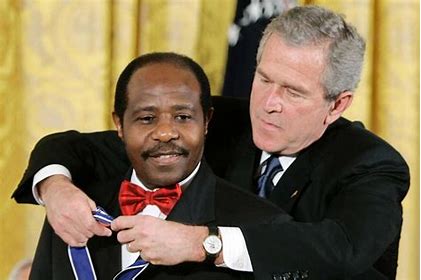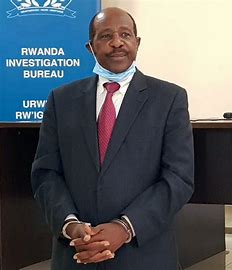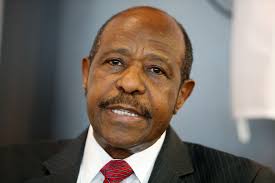In recent history, not many stories are as complicated and full of mixed feelings as the one about Paul Rusesabagina. He was once celebrated as a hero for what he did during the 1994 Rwandan Genocide, a truly horrible time. However, as time has passed, the way people see him has changed a lot. What was once seen as pure heroism is now tangled up with controversy and political drama.

Rusesabagina came to international prominence through the Hollywood lens of “Hotel Rwanda,” a dramatization of his purported efforts to save over a thousand ethnic Tutsis and moderate Hutus by providing shelter in the hotel he managed during one of the 20th century’s most brutal genocides. This portrayal won him accolades and admiration worldwide, depicting him as a figure of moral fortitude and decisive action in the face of systemic atrocity.
However, the narrative surrounding Rusesabagina is not without its detractors. Some within Rwanda and beyond have challenged the accuracy of his portrayal in the film and his subsequent public persona. Accusations of embellishing his role and leveraging his fame for personal gain have cast shadows on his story, illustrating the contentious nature of historical interpretation and the delicate process of canonizing heroes.
The complexity of Rusesabagina’s story deepened with his arrest in 2020 on multiple charges, including terrorism, arson, and murder, as stated by the Rwandan government. These charges, which Rusesabagina and his supporters vehemently deny, suggest a dramatic pivot from international humanitarian to accused criminal. Critics of the Rwandan government, led by President Paul Kagame, see this as a politically motivated attempt to silence one of its most vocal critics, pointing to broader concerns about human rights and freedom of expression in Rwanda.
Rusesabagina’s trial and the circumstances of his arrest have sparked international debate over the fairness and legitimacy of the Rwandan judicial process. His case raises critical questions about the intersection of politics and justice, the reliability of international support for political dissidents, and the fragile nature of reputation in the modern age.

As the world continues to grapple with the dichotomy of Rusesabagina’s identity—as either a genuine hero or a cunning opportunist—the broader implications for how we interpret and valorize figures of moral courage become increasingly significant. His story serves as a cautionary tale about the complexities of human nature, the subjective lens through which history is viewed, and the volatile interplay between politics and personal legacy.
In navigating the narrative of Paul Rusesabagina, it becomes clear that heroism is often a matter of perspective, shaped by the narratives we choose to believe and the truths we decide to highlight. As this saga unfolds, it serves as a poignant reminder of the nuanced, often contentious nature of historical interpretation and the enduring quest for justice and truth in the shadow of past atrocities.


1 comment
He is an opportunist not a hero